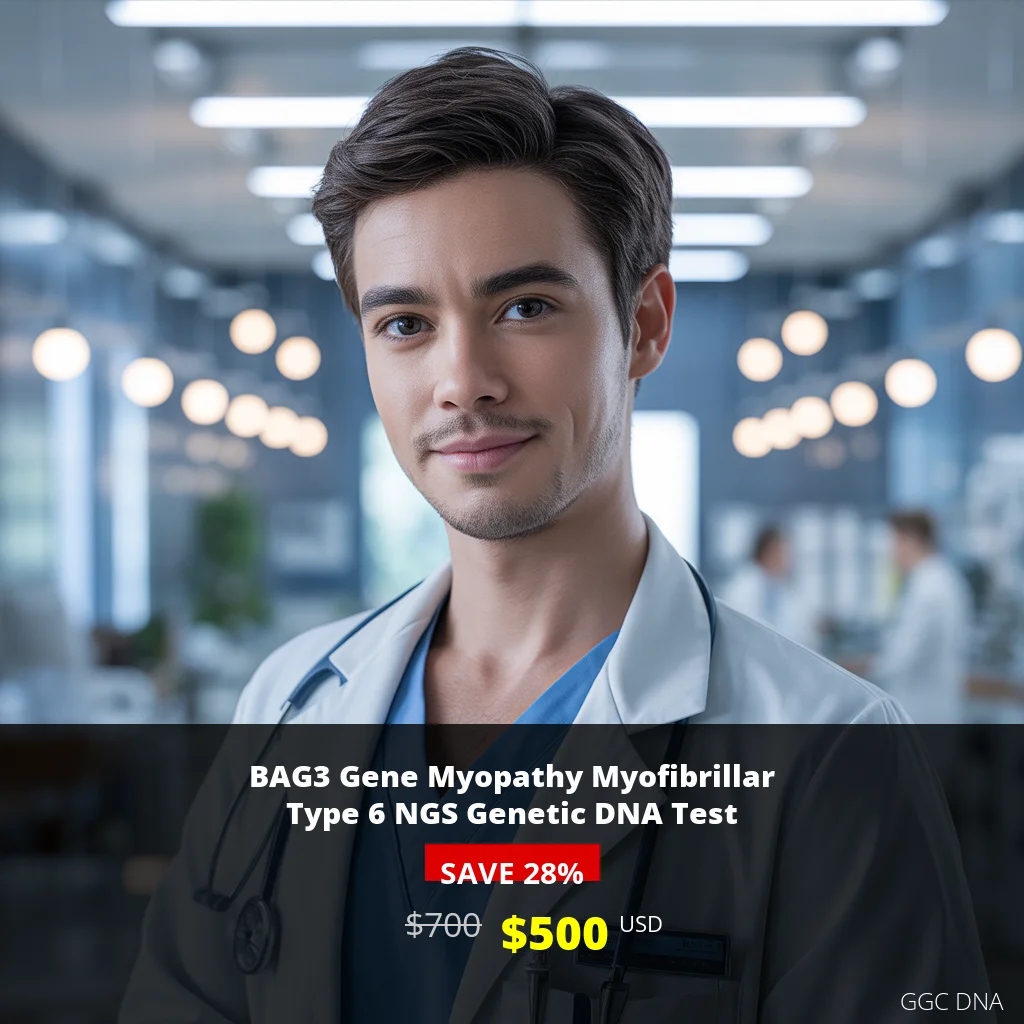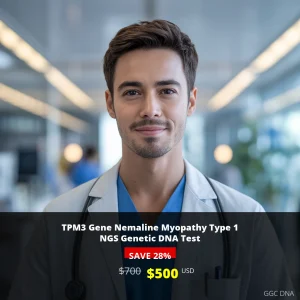BAG3 Gene Myopathy Myofibrillar Type 6 NGS Genetic DNA Test
Comprehensive Genetic Testing for Inherited Muscle Disorders
The BAG3 Gene Myopathy Myofibrillar Type 6 NGS Genetic DNA Test represents a breakthrough in neurological genetic diagnostics, offering precise identification of mutations in the BAG3 gene associated with myofibrillar myopathy type 6. This progressive neuromuscular disorder affects muscle structure and function, leading to significant mobility challenges and potential cardiac complications. Our advanced testing methodology provides patients and healthcare providers with definitive diagnostic information crucial for developing effective treatment strategies and understanding inheritance patterns.
What This Test Measures and Detects
This comprehensive genetic analysis specifically targets the BAG3 (BCL2-associated athanogene 3) gene using Next-Generation Sequencing technology to identify:
- Pathogenic variants and mutations in the BAG3 gene
- Specific genetic alterations responsible for myofibrillar myopathy type 6
- Inheritance patterns and familial risk assessment
- Genetic markers associated with disease progression and severity
- Potential therapeutic targets based on genetic findings
Who Should Consider This Test
This genetic test is recommended for individuals experiencing:
- Progressive muscle weakness beginning in childhood or early adulthood
- Unexplained difficulty with walking, running, or climbing stairs
- Family history of neuromuscular disorders or inherited myopathies
- Cardiomyopathy or heart muscle abnormalities of unknown origin
- Respiratory muscle weakness requiring ventilation support
- Muscle biopsy findings suggestive of myofibrillar myopathy
- Developmental delays in motor skills during childhood
Key Benefits of BAG3 Genetic Testing
- Accurate Diagnosis: Provides definitive identification of BAG3 gene mutations, eliminating diagnostic uncertainty
- Family Planning: Enables informed reproductive decisions and genetic counseling for at-risk family members
- Personalized Treatment: Guides targeted therapeutic approaches based on specific genetic findings
- Proactive Monitoring: Facilitates early intervention for cardiac and respiratory complications
- Clinical Trial Eligibility: Opens access to specialized treatments and research opportunities
- Psychological Relief: Reduces anxiety by providing clear answers about symptoms and prognosis
Understanding Your Test Results
Your genetic test results will be thoroughly explained by our certified genetic counselors and neurologists. Positive results indicating BAG3 gene mutations confirm the diagnosis of myofibrillar myopathy type 6 and provide guidance for:
- Comprehensive management of muscle weakness and mobility issues
- Regular cardiac monitoring for potential cardiomyopathy development
- Respiratory function assessment and intervention planning
- Family member testing recommendations
- Long-term prognosis and quality of life optimization strategies
Negative results typically indicate that BAG3 gene mutations are not responsible for your symptoms, allowing your healthcare team to explore alternative diagnoses and treatment approaches.
Test Pricing and Details
| Test Component | Details |
|---|---|
| Test Name | BAG3 Gene Myopathy Myofibrillar Type 6 NGS Genetic DNA Test |
| Discount Price | $500 USD |
| Regular Price | $700 USD |
| Turnaround Time | 3 to 4 Weeks |
| Sample Type | Blood, Extracted DNA, or One Drop Blood on FTA Card |
| Testing Method | Next-Generation Sequencing (NGS) Technology |
Pre-Test Requirements
Before scheduling your BAG3 genetic test, we recommend:
- Comprehensive clinical history documentation of neuromuscular symptoms
- Genetic counseling session to create detailed family pedigree chart
- Discussion of test implications with your neurologist or genetic specialist
- Review of insurance coverage and financial considerations
- Understanding of potential psychological impacts of genetic testing results
Nationwide Testing Availability
We proudly offer BAG3 genetic testing services across the United States, with convenient testing locations in major metropolitan areas including New York, Los Angeles, Chicago, Houston, Phoenix, Philadelphia, San Antonio, San Diego, Dallas, and San Jose. Our network of certified collection centers ensures accessible testing for patients nationwide.
Take Control of Your Neurological Health Today
Don’t let uncertainty about your muscle symptoms or family history of neuromuscular disorders prevent you from getting the answers you deserve. Our BAG3 Gene Myopathy Myofibrillar Type 6 NGS Genetic DNA Test provides the clarity needed for informed healthcare decisions and personalized treatment planning.
Call or WhatsApp us today at +1(267) 388-9828 to schedule your genetic test consultation and take the first step toward definitive diagnosis and comprehensive care.
Our team of genetic specialists, neurologists, and certified counselors are ready to guide you through the testing process and help you understand your results in the context of your overall health and family planning goals.







